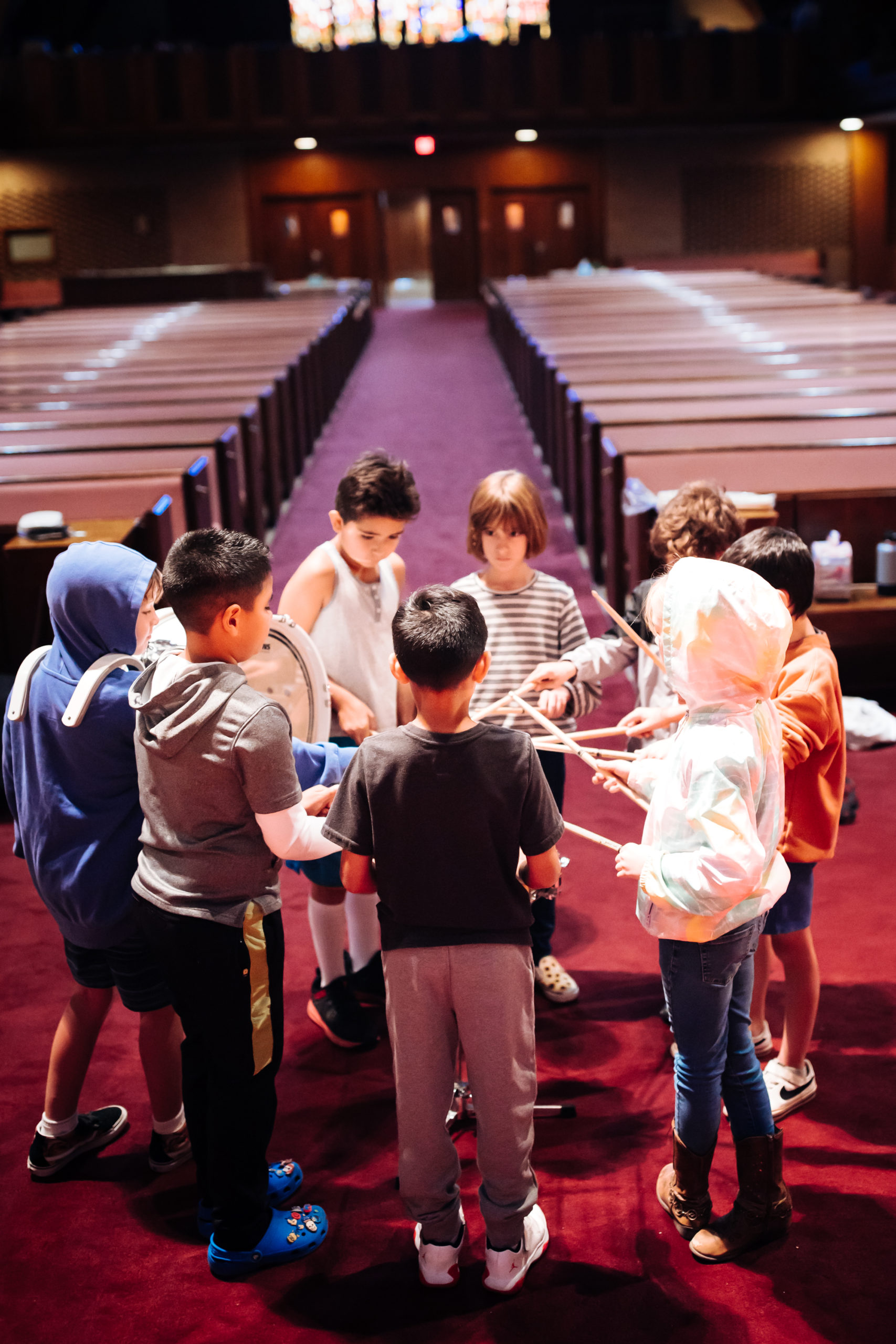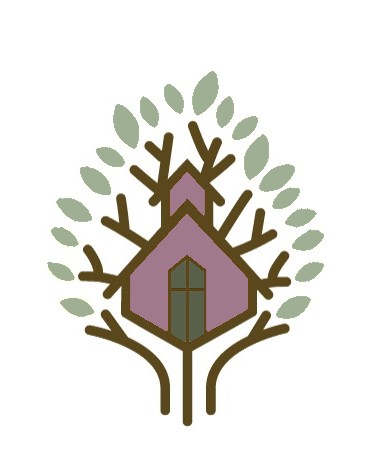
The Environment as an Educator
The most recognizable feature of Reggio pedagogy is the use of the environment as the third educator, following parents and teachers. The center-based environments are rich with stimuli and related opportunities, contributing to the quality of experiences for both children and the adults involved in the school. The environments prompt communication and relationships thus inspiring an extraordinary social exchange.

Our Outdoor Environments
Our outdoor environments truly unite us in collaboration with nature! Our playground’s intentional design encourages skill development in a variety of domains concurrently resulting in dynamic, nature-based play and learning spaces that allow for whole-child learning. The natural beauty and serene atmosphere serves as an antidote to the sometimes frantic world of children. Our students and teachers spend much of their day learning from and within outdoor classrooms.

Our Educational Approach
As an elementary program, we research a variety of curricula, gathering tools and resources that we believe better support the way children learn. As a Reggio Emilia inspired school, we do not abide by one single theory or curriculum; instead, we use what best supports differentiated learning and a variety of learning styles. Likewise, our teachers, classrooms, materials, tools, and spaces support the diverse needs of our students. This means that teachers will incorporate drama, art, constructing, reading, music, outdoor activities, and speech into each day of learning. By using a variety of techniques and expressive opportunities, teachers ensure that each child’s way of absorbing information will be touched upon whether they are visual, auditory, tactile, or active learners. Our teachers guide children’s learning through careful listening, observation, and documentation of work, as they engage with one another and develop a classroom community.
Beyond the Textbook
Textbooks are used as another resource rather than as a set guide. Students and teachers use them as a tool for further research to support ongoing experiences. In our school, we have access to a wide variety of quality resources, tools, spaces, and materials that support our analysis and enhance investigations beyond a textbook. Some of these include library and research center computers, iPads, science equipment, musical instruments, field trips, guest field experts, etc. There are multiple tools for learning including paint, objects from nature, loose parts, mathematics manipulatives, blocks, and other construction activities.


Music
Music produces “beautiful”, “tuneful”, and “artful” children. The ability to keep a steady beat is vital to language and motor development. The ability to match pitch creates an inner-voice, which is vital to intellectual development. And Finally, a shared experience that promotes healthy emotions and builds a sense of beauty is the “art” of music classes. In a society that seems increasingly disconnected and individualistic, music at our school emphasizes positive feelings and belonging.
Technology
Technology has a respected place in our curriculum as a tool that students, teachers and parents use collaboratively to discover new things and document the learning process.
Culture & Language
Our curriculum offers opportunities for bilingual and multicultural experiences. In keeping with Reggio approach, and acknowledging our unique geographic and cultural context, we incorporate Spanish language and Mexican traditions into our daily programming. Students are exposed to the repetitive rudiments of the Spanish language through greetings, prayers, songs, books, stories, natural routines and new vocabulary. The benefits of dual language are directly related to higher brain development, flexible thinking skills, higher intelligence levels and cultural, racial and religious tolerance and understanding.


The Role of Parents
We value parents as participants in their child’s learning process. Their involvement in the school gives their children a sense of security and is deeply appreciated. This lends itself to having parents be role models for their children and providing them an authentic incentive for learning.
Documentation
In collaboration, the child, teacher and parents along with the community are all active in the learning process in an authentic way. Each “player” is a rich natural resource available to support the education of each child and one another. Through a very powerful documentation process we are able to continuously detail an account of each child’s learning journey. Teachers use an assortment of documentation methods resulting in a portfolio with artwork, photos, writing samples, progress reports, completed projects and quotes from the child.
Address:
1340 Murchison Dr
El Paso, Texas 79902
Phone:
Email:
school@firstpres-ep.org

